In politics, a national assembly is either a unicameral legislature, the lower house of a bicameral legislature, or both houses of a bicameral legislature together. In the English language it generally means "an assembly composed of the representatives of the nation." The population base represented by this name is manifestly the nation as a whole, as opposed to a geographically select population, such as that represented by a provincial assembly. The powers of a National Assembly vary according to the type of government. It may possess all the powers of government, generally governing by committee, or it may function solely within the legislative branch of the government.

The National Assembly is the lower house of the bicameral French Parliament under the Fifth Republic, the upper house being the Senate. The National Assembly's legislators are known as députés, meaning "delegate" or "envoy" in English; etymologically, it is a cognate of the English word deputy, the standard term for legislators in many parliamentary systems.
The chamber of deputies is the lower house in many bicameral legislatures and the sole house in some unicameral legislatures.
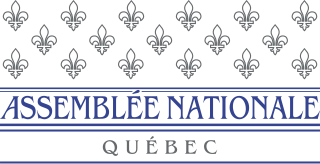
The National Assembly of Quebec is the legislative body of the province of Quebec in Canada. Legislators are called MNAs. The King in Right of Quebec, represented by the lieutenant governor of Quebec, and the National Assembly compose the Legislature of Quebec, which operates in a fashion similar to those of other Westminster-style parliamentary systems. The assembly has 125 members elected first past the post from single-member districts.

Assemblée nationale is a station on line 12 of the Paris Métro in the 7th arrondissement. It is named after the nearby National Assembly.

During the French Revolution, the National Assembly, which existed from 17 June 1789 to 9 July 1789, was a revolutionary assembly of the Kingdom of France formed by the representatives of the Third Estate (commoners) of the Estates-General and eventually joined by some members of the First and Second Estates. Thereafter, it became a legislative body known as the National Constituent Assembly, although the shorter form was favored.

Guinea elects on the national level a head of state—the president—and a legislature. The president is elected for a five-year term by the people through a two-round system. The National Assembly has 114 members, elected for five-year terms, 38 members in single-seat constituencies and 76 members by proportional representation.
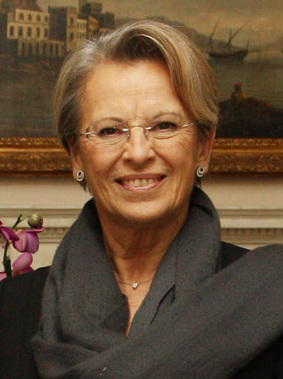
Michèle Yvette Marie-Thérèse Jeanne Honorine Alliot-Marie, known in France as MAM, is a French politician and Member of the European Parliament (MEP) from France. She is a member of the Republicans, part of the European People's Party. A member of all right-wing governments formed in the 1980s, 1990s and 2000s, she was the first woman in France to hold the portfolios of Defense (2002–2007), the Interior (2007–2009) and Foreign Affairs (2010–2011); she has also been in charge of Youth and Sports (1993–1995) and Justice (2009–2010), and was granted the honorary rank of Minister of State in her last two offices.
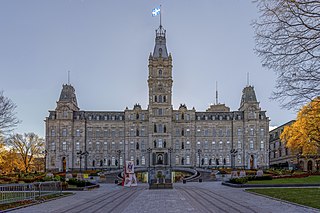
The Parliament Building of Quebec is an eight-floor structure and is home to the National Assembly of Quebec, in Quebec City, Quebec, Canada. The Parliament Building was designed by architect Eugène-Étienne Taché in a Second Empire style and built between 1877 and 1886, in the heart of Quebec's Parliament Hill. The National Assembly first met there on March 27, 1884, even though the building was only fully completed two years later, on April 8, 1886. From the 1910s to the 1930s, the government built several adjacent buildings to expand its office spaces, creating a parliamentary complex, of which the Parliament Building is the main edifice. This structure is a successor of several earlier buildings, the earliest of which was built in 1620 and among which there were two other parliament houses that served as legislatures.

The unicameral National Assembly is Benin's legislative body.

The National Assembly is the lower house of the Parliament of Gabon. It has 143 members, elected by Two round system
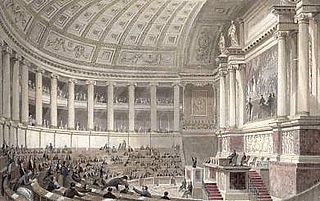
Chamber of Deputies was a parliamentary body in France in the nineteenth and twentieth centuries:
A National Assembly is either a unicameral legislature, the lower house of a bicameral legislature, or both houses of a bicameral legislature together.

Arthur Jean Baptiste Ramette was a French mechanic and communist politician. He was a leading representative of the French Communist Party in the National Assembly both before and after World War II (1939–45).

The 15th legislature of the French Fifth Republic was the French Parliament that was in office from 27 June 2017 until 21 June 2022. The party of President Emmanuel Macron, La République En Marche! (LREM), obtained an absolute majority of 308 deputies, alongside its ally, the Democratic Movement (MoDem), which secured 42 seats. The newly-installed deputies elected François de Rugy as President of the National Assembly when the National Assembly first convened on 27 June. The legislative election saw a record level of renewal, with only a quarter of the deputies elected in 2012 also elected in 2017, as well as a significant increase in the representation of women and youth. With seven planned parliamentary groups, it would be the most fragmented National Assembly since 1958.
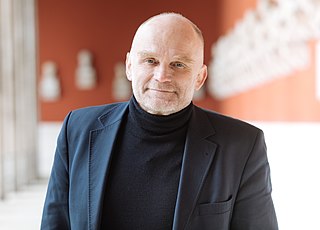
Frédéric Petit, is a French engineer and politician. He is belonging to the Democratic Movement. Since 19 June 2017, he serves as a member of the French National Assembly where he represents the Seventh constituency for French residents overseas.

Stéphanie Do is a French politician and a member of La République En Marche!. She was elected to the French National Assembly on 18 June 2017, representing the 10th constituency of department of Seine-et-Marne, under the investiture of La République En Marche. Do holds a position in the Bureau of the National Assembly of the 15th legislature of the French Fifth Republic as a secretary.

The Franco-German Parliamentary Assembly is a joint body of the German Bundestag and the French National Assembly formed to enable cooperation between both houses.

The Émile Ollivier ministry was the penultimate government of the Second French Empire. Led by Émile Ollivier, a republican opponent of the Empire, it was initially composed of moderate bonapartists and orléanists. However following the constitutional referendum on 8 May liberal members of the cabinet resigned and were replaced with politicians of a more authoritarian type. It lasted from 2 January 1870 until 10 August 1870, on the outbreak of the Franco-Prussian War, when it was replaced by the Cousin-Montauban ministry. It was often referred to at the time as the Ministry of 2 January.















